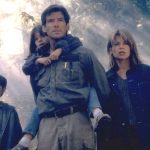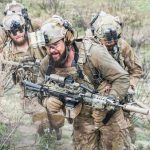The Hills Have Eyes 2006
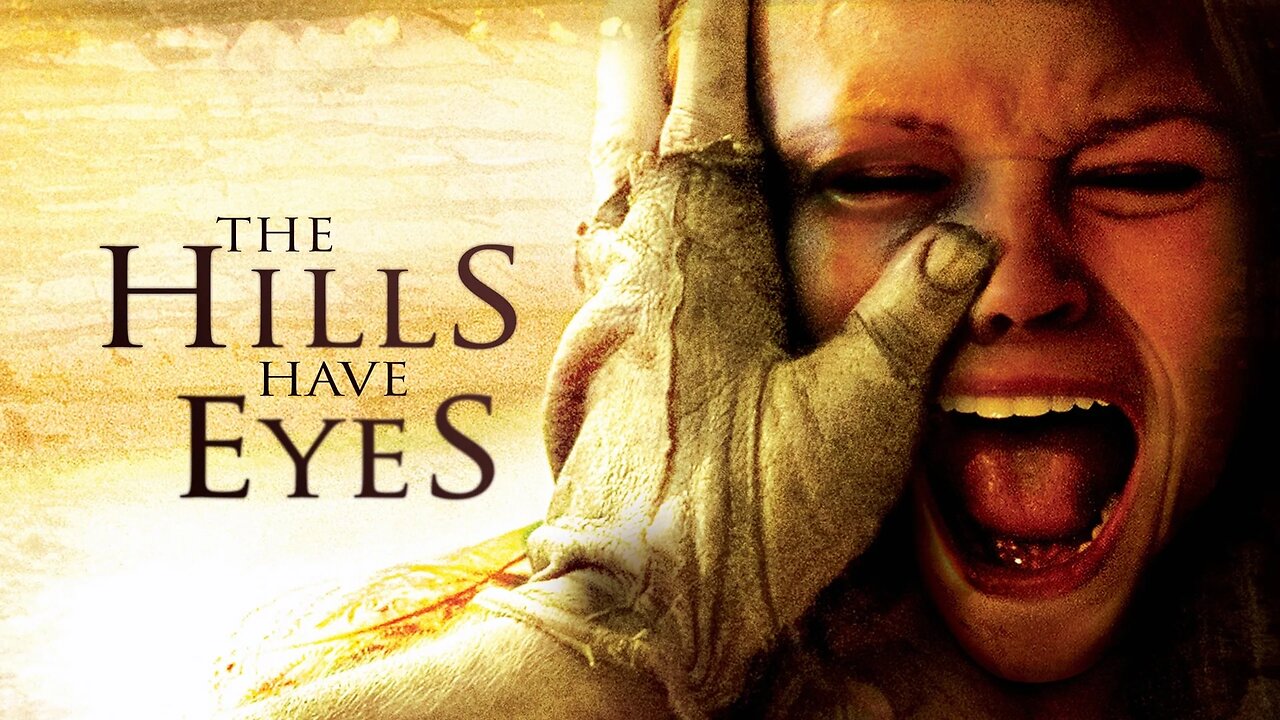
The Hills Have Eyes (2006) is a chilling American horror film directed by Alexandre Aja, with a screenplay by Aja and Grégory Levasseur. It is a remake of the 1977 film of the same name by Wes Craven. Known for its brutal and disturbing content, the film follows a family whose road trip through the desert goes horribly wrong when they become stranded and are attacked by a group of violent mutants. The movie is a tense and horrifying journey into survival, fear, and the primal instinct to protect one’s family at all costs.
The story centers around the Carter family, who are traveling to California when their car breaks down in the desolate Nevada desert. With no help in sight, the family is forced to take shelter in the remote area. However, they soon discover that they are not alone. A group of mutated cannibals, led by the sadistic Papa Jupiter (played by Billy Drago), lurk in the hills, watching their every move. As the family members struggle to survive and fight back, they realize that their only hope of escaping lies in their ability to outsmart and overpower their attackers.
One of the key themes of The Hills Have Eyes is survival. The film explores how ordinary people, under extreme pressure, are pushed to their limits and forced to tap into their primal instincts. The Carters are a typical American family—mom, dad, teenagers, and young children—who are suddenly thrown into a terrifying and life-threatening situation. As the family fights to survive, they are forced to make brutal decisions, and their relationships are tested in ways they never imagined. The film suggests that survival often comes at a high moral cost, as characters must choose between retaining their humanity or becoming as brutal as those trying to kill them.
Another central theme in the film is the idea of isolation. The Carters are stranded in an inhospitable desert with no way to communicate with the outside world. This isolation amplifies their vulnerability, making them easy prey for the cannibalistic mutants who thrive in the wilderness. The vast, empty landscape surrounding them emphasizes their helplessness and creates a sense of claustrophobia despite the openness of the desert. The isolation of the family, both physically and emotionally, adds to the tension and fear as they realize that no one is coming to help them.
The film also plays heavily on the fear of the “other.” The mutants, who are portrayed as grotesque, violent, and animalistic, represent a distorted and terrifying version of humanity. Their physical deformities and savage behavior set them apart from the Carters, making them seem monstrous and inhuman. However, the film hints at a dark irony—their monstrous behavior is a result of human neglect and experimentation, which raises questions about the nature of evil. Are the mutants truly monsters, or are they victims of a corrupt society? This moral ambiguity adds a layer of depth to the horror, forcing the audience to confront their own biases and assumptions.
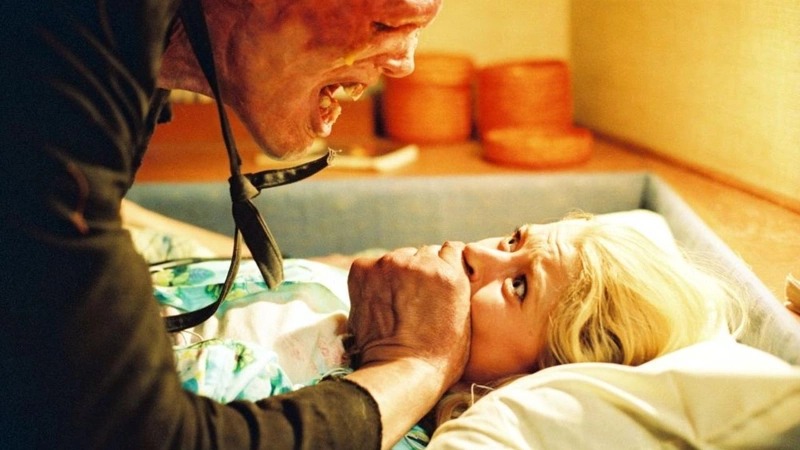
Alexandre Aja’s direction creates an intense atmosphere of dread and tension throughout the film. The pacing is relentless, with the action escalating quickly from the moment the Carters are stranded. Aja uses the desert setting to his advantage, creating a stark contrast between the seemingly endless open space and the feeling of being trapped. The use of darkness and shadows in key scenes also heightens the sense of danger, as the family never knows when or where the mutants will strike next. The violence in the film is graphic and unflinching, but it is also essential to the film’s survival narrative, emphasizing the extreme nature of the situation.
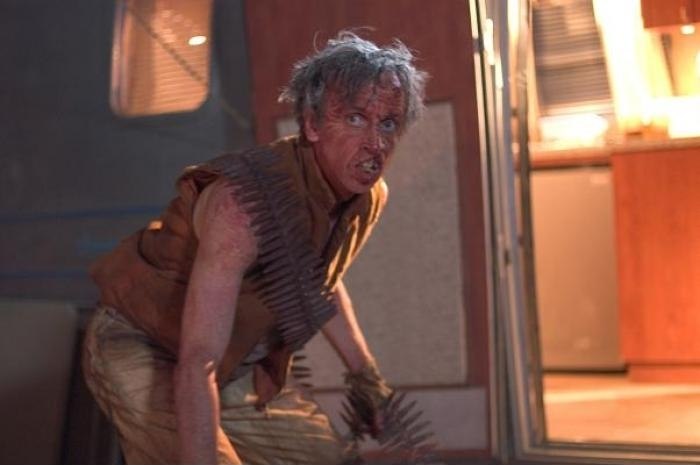
The performances in The Hills Have Eyes are solid, with the cast convincingly portraying the fear, desperation, and determination of the Carters. Ted Levine, known for his role in The Silence of the Lambs, delivers a strong performance as Big Bob Carter, the protective father who must rise to the challenge of defending his family. The younger actors, including Kathleen Quinlan and Emilie de Ravin, bring a sense of vulnerability to their roles, making their survival journey all the more emotional. The mutants, played by a mix of actors under heavy prosthetics, are both grotesque and frightening, adding to the film’s disturbing tone.
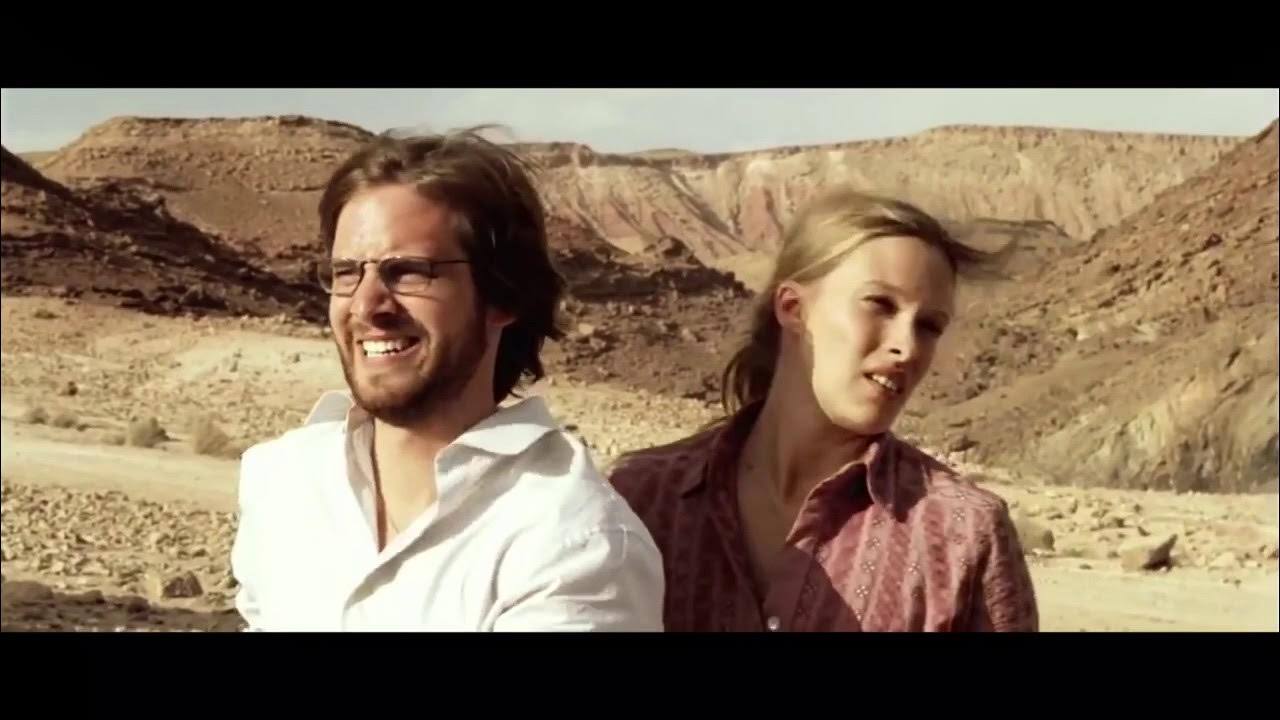
In conclusion, The Hills Have Eyes (2006) is a brutal and unnerving horror film that delves into themes of survival, isolation, and the fear of the unknown. Directed by Alexandre Aja, the film is a tense and atmospheric remake that amplifies the terror of its 1977 predecessor. Through its exploration of human nature and moral ambiguity, it offers more than just shocks and violence—it raises questions about the thin line between civilization and savagery. While the film’s graphic content is unsettling, its exploration of the human will to survive under extreme conditions makes it a thought-provoking horror experience.








